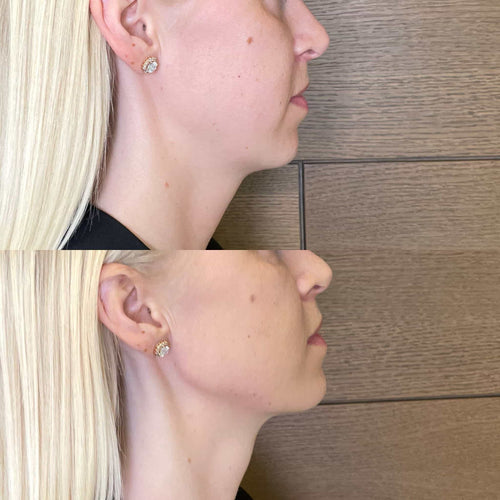Get Your Dermal Filler Consultation with Dr. Laura Geige at It’s Me and You Clinic
Factors Influencing Ibuprofen Timing
Lip Filler Type
Timing is crucial when it comes to taking ibuprofen after lip filler injections. Ibuprofen, a non-steroidal anti-inflammatory drug (NSAID), can thin the blood and potentially increase bruising and bleeding at the injection site.
It’s generally recommended to avoid ibuprofen for at least 24 hours before and after your lip filler appointment. This allows your body to minimize inflammation and promotes optimal healing.
The specific timing recommendations may vary depending on individual factors such as your medical history, current medications, and the type of filler used.
Lip fillers come in various types, each with unique properties and potential side effects. Hyaluronic acid fillers, for example, are popular due to their ability to add volume and hydration to the lips. They tend to be well-tolerated but can still cause mild swelling, bruising, or tenderness.
Other types of fillers include collagen, fat injections, and poly-L-lactic acid (PLLA). Each type has its own set of potential complications, and your physician will advise you on the best option based on your desired outcome and individual needs.
Remember to always consult with a qualified and experienced healthcare professional for personalized advice regarding ibuprofen use and lip filler injections. They can assess your individual situation, provide tailored recommendations, and ensure a safe and successful treatment experience.
Procedure Complexity
Timing and procedure complexity are crucial factors when considering ibuprofen use after lip filler injections.
**Ibuprofen**, a non-steroidal anti-inflammatory drug (NSAID), can help manage pain, swelling, and inflammation commonly associated with lip fillers.
However, **ibuprofen’s blood-thinning properties** can increase the risk of bruising and bleeding, potentially compromising the filler’s placement and aesthetic outcomes.
The general recommendation is to **avoid ibuprofen for at least 24 hours before and after lip filler injections**. This timeframe allows your body to properly heal and minimizes potential complications.
**Procedure Complexity:** The complexity of the procedure also influences ibuprofen timing.
Simple, superficial treatments may carry a lower risk of complications, allowing for earlier ibuprofen use. More complex procedures involving larger filler volumes or deeper injection techniques necessitate a longer period of avoidance.
**Consult Your Injector:**
Ultimately, your injector is the best source of information regarding ibuprofen use after your specific lip filler procedure. They can assess individual risk factors and provide tailored advice based on your medical history, the type of filler used, and the complexity of the injection technique.
Individual Health Conditions
Timing the intake of ibuprofen after lip filler injections is crucial to minimize potential complications and ensure optimal results. Several factors influence when it’s safe to take ibuprofen, primarily centered around minimizing inflammation and bleeding.
Book Your Dermal Filler Appointment with Dr. Laura Geige Today
The most common concern is that ibuprofen can increase bleeding risk due to its blood-thinning effects. Lip fillers involve injecting substances into delicate tissue, making any excessive bleeding a concern. Most practitioners advise avoiding ibuprofen for at least 24 hours before and after the procedure. This allows the area to heal properly and reduces the likelihood of bruising or swelling.
Individual health conditions play a significant role in determining appropriate ibuprofen timing. Individuals with pre-existing bleeding disorders, such as hemophilia or platelet dysfunction, should consult their doctor about whether ibuprofen is safe at all, and if so, when it can be taken after the procedure.
Other medical conditions requiring caution include ulcers, gastrointestinal issues, and high blood pressure. Ibuprofen’s potential to irritate the stomach lining and affect blood pressure makes these conditions require careful consideration. It’s best for individuals with these conditions to consult their doctor regarding ibuprofen use post-lip filler.
Finally, the type of lip filler used might influence ibuprofen timing recommendations. Some fillers contain ingredients that are more prone to inflammation or bruising. Your practitioner can provide specific advice based on the chosen filler.
Remember, always consult your doctor or a qualified medical professional for personalized advice regarding medication use and any planned medical procedures. They can assess your individual circumstances and provide tailored recommendations to ensure your safety and well-being.
General Guidelines
Waiting Period Recommendations
After receiving lip fillers, it’s crucial to avoid certain activities and substances that could compromise the results and increase the risk of complications. This includes ibuprofen, a common nonsteroidal anti-inflammatory drug (NSAID) commonly used for pain relief.
Ibuprofen can interfere with the healing process by thinning the blood and increasing the chance of bleeding or bruising at the injection site. This can lead to swelling, distortion of the filler placement, and even potential migration of the filler.

While individual practitioners may have slightly different recommendations, a general guideline is to abstain from ibuprofen for at least 24 to 48 hours after lip filler injections.
During this waiting period, it’s best to manage any discomfort with safer alternatives like applying ice packs, taking acetaminophen (Tylenol) as directed by your doctor, or using over-the-counter pain relief creams specifically designed for post-procedure use.
Remember to always follow the specific instructions provided by your injector. They are most familiar with your individual case and can give you personalized advice on when it’s safe to resume taking ibuprofen or other medications.
Adhering to these guidelines will help ensure optimal healing and beautiful, natural-looking lip filler results.
Pain Management Alternatives
General guidelines for pain management after lip filler procedures emphasize minimizing discomfort and promoting optimal healing.
It’s crucial to follow your practitioner’s specific post-treatment instructions, as they are tailored to your individual needs and the type of filler used.
Pain Management Alternatives
Over-the-counter pain relievers like ibuprofen (Advil, Motrin) or naproxen (Aleve) can be effective in managing mild to moderate discomfort.
These medications reduce inflammation and provide pain relief by blocking the production of prostaglandins, which are chemicals that contribute to pain and swelling.
However, it’s essential to consult with your healthcare provider regarding dosage and timing, especially if you have pre-existing medical conditions or take other medications.
Ice packs applied for 10-20 minutes at a time can help reduce swelling and numb the area, providing temporary pain relief.
Avoid direct contact between ice and your skin; wrap it in a towel to prevent frostbite.
Topical anesthetic creams or gels containing lidocaine or benzocaine can also offer localized numbing effects.
Your practitioner may recommend these products, but always follow the instructions carefully.
Arnica gel or cream is a natural option often suggested for reducing bruising and swelling after cosmetic procedures.
While not directly addressing pain, it may contribute to overall discomfort reduction by minimizing inflammation.
Staying hydrated by drinking plenty of water can promote circulation and healing, which indirectly supports pain management.
Avoid alcohol consumption as it can interfere with healing and increase inflammation.
Resting your lips and avoiding strenuous activities that may cause irritation or pressure can also aid in recovery.
If you experience severe or persistent pain beyond what is considered normal, contact your practitioner immediately.
They may adjust your treatment plan or recommend additional pain management strategies.
Potential Risks and Complications
Inflammation and Swelling
Inflammation and swelling are common side effects after lip filler injections.
They usually peak within 24-72 hours and gradually subside over several days or weeks.
During this period, it’s important to avoid activities that could worsen inflammation or disrupt the healing process.
Here are some potential risks and complications associated with lip filler injections:
- Infection: As with any injection, there is a risk of infection. This can be minimized by following proper hygiene practices and ensuring the injector uses sterile techniques.
- Allergic reaction: Some individuals may experience an allergic reaction to the filler material. Symptoms can range from mild (redness, itching) to severe (anaphylaxis). It’s crucial to inform your injector of any allergies you have before the procedure.
- Asymmetry: If the filler is not evenly distributed, it can result in an asymmetrical appearance.
- Lumps or bumps: Filler material may sometimes form lumps or bumps under the skin. These usually resolve on their own but may require additional treatment.
- Vascular occlusion: In rare cases, filler can block blood vessels, leading to tissue damage. This is a serious complication that requires immediate medical attention.
Ibuprofen is a nonsteroidal anti-inflammatory drug (NSAID) that can help reduce pain and swelling.
However, it’s important to consult with your injector before taking ibuprofen after lip filler injections. They can advise you on the appropriate timing and dosage based on your individual situation.
In general, NSAIDs may be recommended for a few days after the procedure to manage initial discomfort and inflammation.
It’s crucial to follow your injector’s instructions carefully and avoid exceeding the recommended dose of ibuprofen.
Overuse of NSAIDs can increase the risk of gastrointestinal bleeding or other adverse effects.
Bruising and Bleeding
Bruising and bleeding are common side effects of lip filler injections.
These complications typically resolve on their own within a few days to a week.
However, it’s important to be aware of potential risks and complications associated with lip fillers, especially when considering pain management with ibuprofen.
Here are some potential risks and complications:
- Infection: Any injection carries a risk of infection.
- Lumpiness or Nodules: Filler may not be evenly distributed, leading to lumps or bumps.
- Asymmetry: One lip may look larger than the other if filler is not injected symmetrically.
- Vascular Occlusion: If filler gets into a blood vessel, it can block blood flow and cause tissue damage. This is a rare but serious complication.
- Allergic Reaction: Some people may be allergic to the ingredients in lip fillers.
Ibuprofen and Lip Filler Risks
Ibuprofen, a nonsteroidal anti-inflammatory drug (NSAID), can thin the blood, which may increase the risk of bruising and bleeding after lip filler injections.
Reserve Your Dermal Filler Consultation with Dr. Laura Geige at It’s Me and You Clinic
It’s important to discuss your pain management options with your healthcare provider, as they can advise you on the safest approach based on your individual circumstances and medical history.
They may recommend alternative pain relievers that are less likely to interfere with clotting or suggest taking ibuprofen at a lower dose or for a shorter duration.
Post-Procedure Care
Follow your healthcare provider’s post-procedure care instructions carefully to minimize the risk of complications.
This may include:
- Avoiding strenuous activity
- Applying ice packs to reduce swelling
- Keeping your lips hydrated
- Not touching or picking at the injection sites
Back to Work Experts Humboldt Apothecary CBD MS Style and Grace Pretty Little Answers Emri Studio
- Traptox Aka Trapezius Botox Treatment Near Englefield Green, Surrey - January 2, 2025
- When Can I Take Ibuprofen After Lip Filler - December 19, 2024
- Light Eyes Ultra – Dark Circles Treatment Near Richmond, Surrey - December 12, 2024
